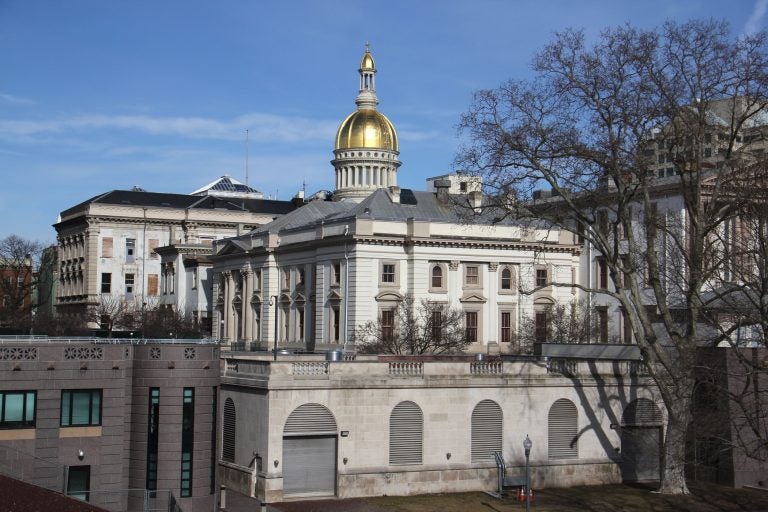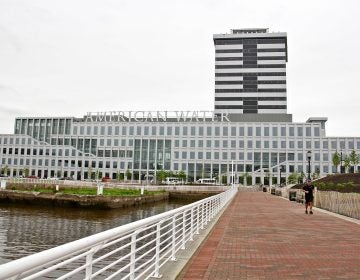N.J. committee votes to extend controversial tax credit programs
The programs, started under former Gov. Chris Christie, have awarded billions in incentives to companies that agreed to move to or expand in New Jersey.

New Jersey Statehouse in Trenton. (Emma Lee/WHYY)
New Jersey lawmakers voted Thursday to extend the lives of two controversial tax credit programs that have roiled Trenton in recent months.
The programs, started under former Gov. Chris Christie, have awarded billions of dollars in incentives to companies that agreed to move to or expand in New Jersey, and business insiders testified that allowing the programs to expire on July 1 would risk missing out on future opportunities.
“A state that lets it’s economic growth incentives lapse signals that it’s out of business,” said Michael Egenton, executive vice president of the New Jersey Chamber of Commerce.
Yet, the hearing of the Assembly Commerce and Economic Development Committee was also interrupted by protesters who called on the state to “reform the [Economic Development Authority]” before it extended the current tax credit programs. Labor activists suggested lawmakers should scrutinize the kinds of jobs created by these incentives.
“The jobs are coming hand over fist,” said Megan Chambers, with the Laundry, Distribution and Food Service Joint Board, Workers United, SEIU. “The question is what kinds of jobs will these be.”
The committee unanimously approved a bill (A5343) extending the Grow NJ Assistance program and the Economic Redevelopment and Growth program through January 31, 2020.
The vote comes amid a heated fight over tax incentives in New Jersey.
A task force convened by Gov. Phil Murphy to investigate the Christie-era programs has uncovered allegations of potential abuse by companies that may have lied on their applications or failed to live up to the requirements of their agreements.
Democratic political power broker George Norcross, whose insurance firm received a tax incentive to relocate to Camden, claimed in a lawsuit against the state that the creation of the task force violated the law. Norcross is chairman of the Board of Trustees of the Cooper Health System, which also received a tax incentive.
A WNYC/ProPublica investigation found that companies with ties to Norcross received $1.1 billion in tax breaks.
Top Democrats in the Legislature have pushed back on Murphy’s criticism of the tax incentive programs, saying they should not be blown up based on a few bad actors and pointing to new investments in depressed cities such as Camden.
But Murphy has advocated for changes to the programs, such as prioritizing union labor and capping the amount the state awards each year.
“It’s simply saying, here is how much we’re going to spend on this effort for this year, and that is going to force us to be smart in how we deploy those resources,” said Brandon McKoy, president of New Jersey Policy Perspective.
But business groups at Thursday’s hearing suggested it would be a bad idea to stop the tax incentive programs altogether while lawmakers figured out how to reshape them, because companies are continuing to apply for tax credits to move to the Garden State.
“There were many businesses in the queue before all of this started, before any of this conversation started. And it’s my understanding that the extension would allow them to still continue through the process should they want to do it,” said former Christie aide Christina Renna, who is now senior vice president of the Chamber of Commerce Southern New Jersey. “If we end [these programs], that dies. And that’s obviously not something that we would want.”
Identical legislation is scheduled for a vote in the Senate Budget and Appropriations on Monday.
WHYY is your source for fact-based, in-depth journalism and information. As a nonprofit organization, we rely on financial support from readers like you. Please give today.




